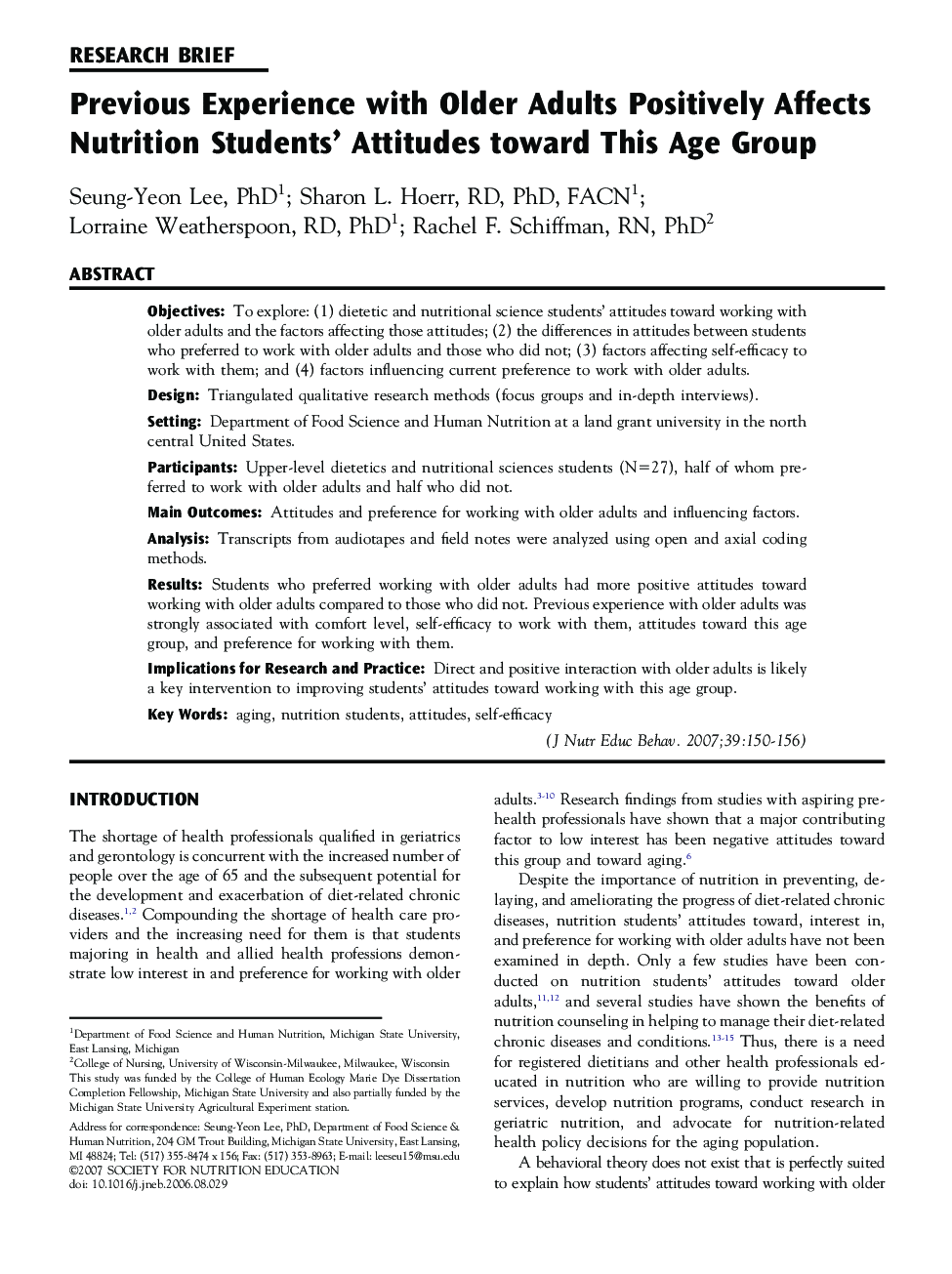| Article ID | Journal | Published Year | Pages | File Type |
|---|---|---|---|---|
| 363132 | Journal of Nutrition Education and Behavior | 2007 | 7 Pages |
ObjectivesTo explore: (1) dietetic and nutritional science students’ attitudes toward working with older adults and the factors affecting those attitudes; (2) the differences in attitudes between students who preferred to work with older adults and those who did not; (3) factors affecting self-efficacy to work with them; and (4) factors influencing current preference to work with older adults.DesignTriangulated qualitative research methods (focus groups and in-depth interviews).SettingDepartment of Food Science and Human Nutrition at a land grant university in the north central United States.ParticipantsUpper-level dietetics and nutritional sciences students (N=27), half of whom preferred to work with older adults and half who did not.Main OutcomesAttitudes and preference for working with older adults and influencing factors.AnalysisTranscripts from audiotapes and field notes were analyzed using open and axial coding methods.ResultsStudents who preferred working with older adults had more positive attitudes toward working with older adults compared to those who did not. Previous experience with older adults was strongly associated with comfort level, self-efficacy to work with them, attitudes toward this age group, and preference for working with them.Implications for Research and PracticeDirect and positive interaction with older adults is likely a key intervention to improving students’ attitudes toward working with this age group.
